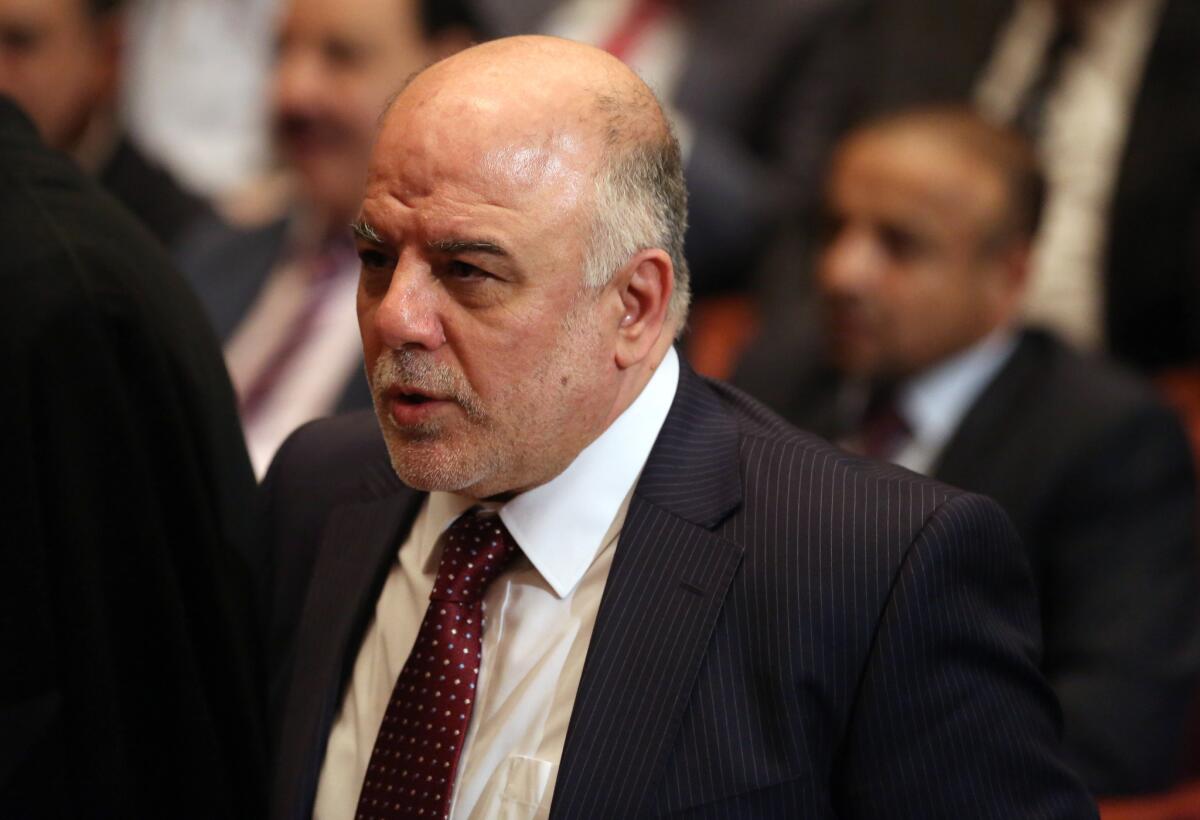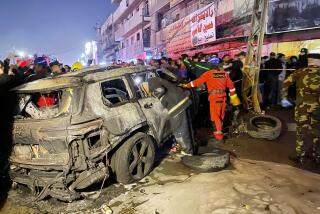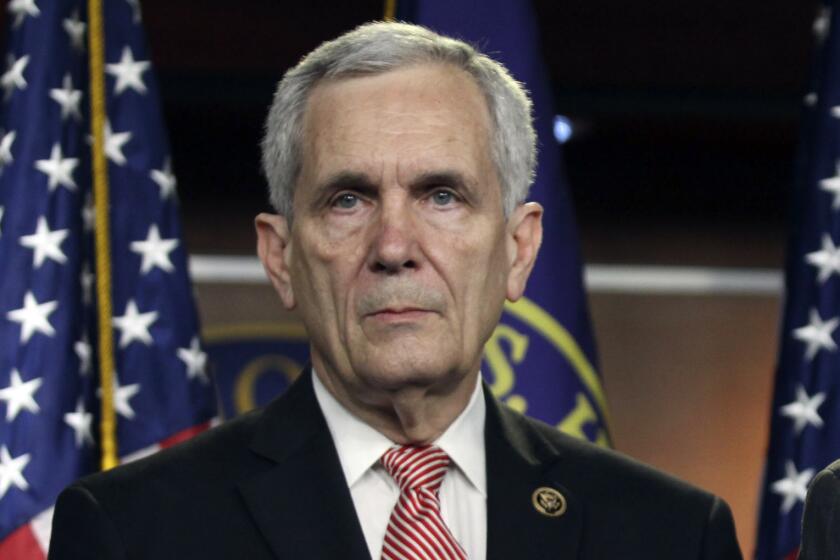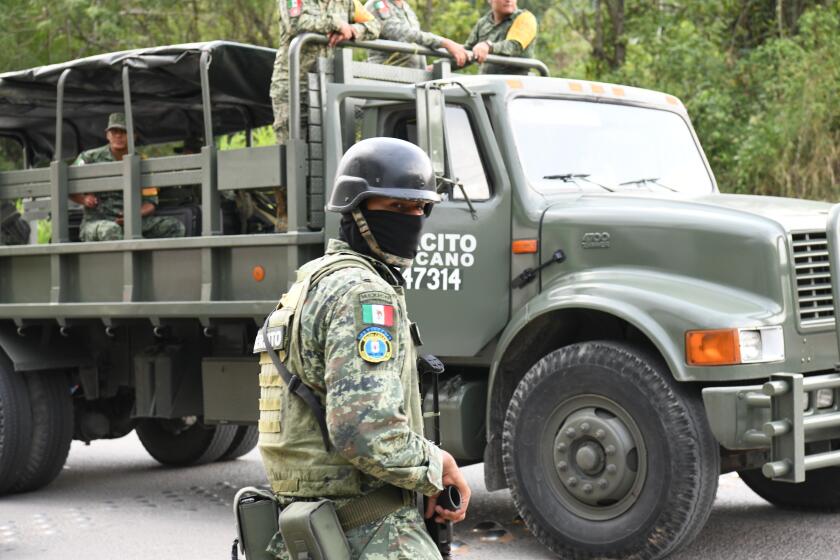Iraq leader orders his air force to not bomb civilian areas

Iraq’s new prime minister declared Saturday that his nation’s warplanes would no longer attack areas where civilians are present, a step meant to ease tensions between the Shiite Muslim-dominated central government and the Sunni Muslim minority.
“I have ordered the Iraqi air force to halt shelling of civilian areas even in those towns controlled by ISIS,” Prime Minister Haidar Abadi announced on his official Twitter account, using a common acronym for the extremist Islamic State group.
The Iraqi government is waging a wide-scale military campaign against the Al Qaeda breakaway faction, which has overrun large swaths of Iraqi territory. The campaign has included airstrikes and artillery bombardment targeting largely Sunni zones under Islamic State control, including the cites of Tikrit, Fallouja and Mosul.
Human rights groups and Sunni leaders have said scores of civilians have been killed and many others injured in the aerial assaults. Some Sunnis have alleged that the bombings were indiscriminate.
Many fear the attacks have hardened support among rank-and-file Sunnis for the Islamic State, which projects itself as a defender of Sunni Muslims. Despite its extreme ideology, many Sunnis have welcomed the Islamic State as a bulwark against abuses by Shiite-led security forces that they regard as sectarian enforcers.
But, despite the pledged respite in bombardment from the skies, Abadi vowed that Baghdad would not cease pursuing militants.
“We will not tire in protecting all Iraqis,” Abadi told reporters in the Iraqi capital. “We will do our best to defend them all.”
The prime minister’s decision was widely viewed as an effort to reach out to the disenfranchised Sunni minority. The United Nations praised the move.
“Protection of civilians and ensuring their safety and security is a paramount priority,” Nickolay Mladenov, the top U.N. official in Iraq, said in a statement.
The United States has also launched more than 150 airstrikes in Iraqi territory in support of the government offensive against the Islamic State. It was not immediately clear if and how Abadi’s declaration might affect U.S. operations.
Some Sunni leaders expressed qualified support of the new limits on Iraqi government airstrikes, though many remain distrustful of Abadi’s administration, which formally took office this week. The new prime minister replaced fellow Shiite Nouri Maliki, who was accused of stoking sectarian tensions and marginalizing the Sunni population.
The Obama administration pushed for Maliki’s exit and applauded Abadi’s ascension to the prime minister’s post. Abadi has pledged to build an inclusive government in Iraq and to reach out to minorities. He faces many hurdles in the deeply divided nation.
It was not publicly known if Baghdad was contemplating alternative strategies to aerial attacks, such as enhanced use of artillery. Commanders often call in airstrikes to clear out enemy forces before ground troops move in. Suspending such strikes could heighten risks for advancing infantry. Islamic State fighters, like other guerrilla combatants, are often dug in among civilian populations.
In central Salahuddin province, a contested zone between government forces and Islamic State combatants, officials on Saturday demanded that an exception be made for the embattled town of Duluiyah, 60 miles north of Baghdad along the Tigris. The town is a frequent site of Islamic State attacks.
“Air cover is what is protecting Duluiyah and supporting army units that are present there,” Ahmad Karim, who heads the local governing council, told Iraqi media outlets.
Special correspondent Bulos reported from Irbil and Times staff writer McDonnell from Beirut.
Following @mcdneville on Twitter for news out of the Middle East.
More to Read
Start your day right
Sign up for Essential California for news, features and recommendations from the L.A. Times and beyond in your inbox six days a week.
You may occasionally receive promotional content from the Los Angeles Times.







